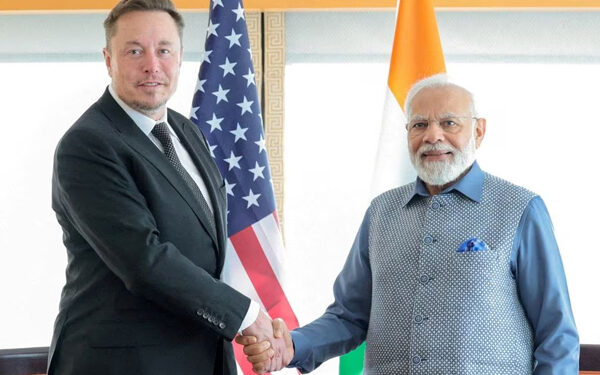According to those with direct information, India is developing a new electric vehicle policy in response to a proposal by Tesla (TSLA.O), which is exploring joining the domestic market, that would lower import tariffs for manufacturers that commit to some local manufacturing.
According to two individuals, including a senior Indian government official, the strategy under consideration might allow automakers to import completely manufactured electric vehicles into India at a reduced tax of as little as 15%, down from the current 100% that applies to vehicles costing more than $40,000 and 70% for anything else.
The starting price of Tesla’s best-selling Model Y, for instance, is $47,740 in the United States before tax incentives.
The official, who is knowledgeable about the matter, stated that there was an understanding with Tesla’s proposal and that the government was interested.
Requests for comment from Tesla and the Indian finance and commerce ministries went unanswered.
The cost of imported EVs, which local automakers have been keen to avoid, may be drastically reduced if such a strategy is established. Along with Tesla, it would also allow other international automakers access to the third-largest auto market in the world, where EV sales are still less than 2% of all auto sales but are rising quickly.
According to a third source, Tesla may be able to sell all of its models in India rather than just the brand-new vehicle it plans to manufacture there because to the cheaper import duties.
The benchmark auto index had intra-day losses of 1.1% as shares of Tata Motors (TAMO.NS), India’s largest electric vehicle manufacturer, plunged over 3% and those of rival Mahindra and Mahindra (MAHM.NS), fell over 2% in response to the Reuters report.
As any reduction in tariffs on imported EVs could upset local businesses like Tata and Mahindra who are investing to produce electric cars domestically, the Indian source added, New Delhi will proceed cautiously in assessing the policy suggestion.
“Even if the government is eager to acquire Tesla, this will undergo a thorough review process. The effect on domestic players is the reason for such, the official stated.
According to two sources, the policy is still being thought through, and the final tax rate may alter.
TESLA’S NEW EV
Similar actions have been taken by other nations to encourage EV manufacturing commitments. To entice Chinese players and Tesla, Indonesia, for instance, has offered to decrease import duties from 50% to zero for EV makers contemplating investments.
By attempting to have the 100% EV import tariff reduced in 2021, Tesla made its first attempt to enter the Indian market. When officials made clear that Tesla would need to first commit to local manufacture, last year’s negotiations between the business and the Indian government came to an end.
More recently, Tesla has informed Indian officials that it is eager to establish a local manufacturing and produce a new EV for the Indian market as well as export that costs around $24,000, or around 25% less than its current entry model.
Rohan Patel, a senior executive at Tesla responsible for business development and public policy, recently had private meetings with important figures. Prime Minister Narendra Modi, who met with CEO Elon Musk in June, has been closely monitoring developments, according to Reuters.
According to the sources, Tesla promoted a reduced import tax proposal that was conditional on a production commitment even though Indian officials made it clear that there would be no special benefits for the company to enter the market.
According to one of the sources, Tesla informed Indian officials that a possible India factory may be fully operational by 2030.
Tesla now operates factories outside of the US in Shanghai, which is its largest facility globally, and in Berlin. In Mexico, a new facility is being constructed that







